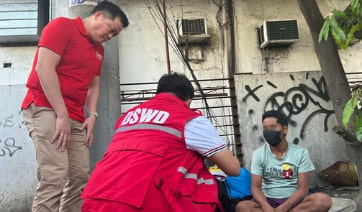The Philippines Department of Social Welfare and Development’s (DSWD) Oplan Pag-Abot Project is intended to establish a central database of families, individuals, and children who are living on the streets. The department is using client biometrics and interview assessments by social workers at designated processing centers to create profiles and connect them with essential services.
The database will enable the government to monitor how many families are in street situations, the status of families that have been reached out to, where they are from, and reasons for their situations. The DSWD says it will be able to use this database to provide ID cards and interventions to give clients what they need to stay off the streets.
“We know that part of the basic human rights is the right to identity. This is the first step towards this end,” explains DSWD Secretary Rex Gatchalian in an interview with local outlet News Breaker, according to an announcement. “They will be given an identification card for the first time in their life after the DSWD’s reach-out operations.”
Gatchalian said in a radio interview reported by Philstar that the ID cards issued by DSWD do not have the status of “government issued” IDs and cannot be used in official transactions. They can, however, be used to validate the information submitted in applications for the national ID.
“These people will have a hard time getting PhilSys because they don’t have a birth certificate. They don’t have any identification. Hopefully, the IDs issued by the DSWD will become the first step to getting those identifications later on,” he says.
Not having access to an ID card is a large barrier for people who are on the streets and need to access government social protection packages. According to Gatchalian, the social workers’ assessments will help determine what interventions a family needs, including medical assistance, food access, transportation and relocation aid, work opportunities and emergency financial assistance.
“We need to expand social protection or extend the care of the government for poor Filipinos, those who have been left behind,” says Gatchalian. “In Oplan Pag-Abot, we aim to reach out to families and individuals, as well as those children who live on the street to make them feel valued by the government.”
July third was the first day of outreach operations in Metro Manila. Gatchalian joined the Oplan Pag-Abot team in reaching out to families and singles living on Macapagal and Roxas Boulevards in Pasay City.
After outreach, the Pag-Abot team brought families to the processing center at the Pasay City Sports Complex for the assessment and interview steps. The center is meant to identify which DSWD centers these families will temporarily stay at, explains Gatchalian.
The program is now a mainstream program within the DSWD. Through July, outreach operations will continue on a shifting basis in three cities in the Metropolitan Manila region: Pasay, Manila and Caloocan.
Article: Philippines connects homeless to government services with biometrics, ID cards
